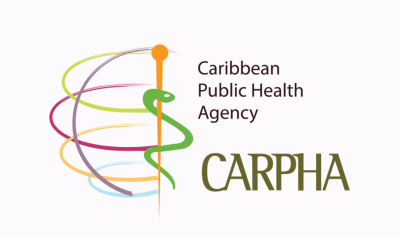“Mental health, neurological and substance use disorders” are a significant cause of disability globally. In the Americas these conditions account for about 20% of the total disability burden. They are surpassed only by non-communicable chronic diseases such as cardiovascular disease and diabetes, which account for about 60% of the total disability burden in the Americas[1]. Among the top twenty countries in the Americas are several Caribbean countries that experience the highest mental health burden. The rising prevalence of mental health conditions in the Caribbean Region is a serious public health concern1,[2].
“Making mental health and well-being a priority requires commitment, involvement, and investment by all of society. It requires promoting public health measures that reduce the risk of mental health illness, including social inclusion policies and interventions targeting vulnerable populations,” said Dr. Joy St. John, Executive Director of the Caribbean Public Health Agency (CARPHA).
In the Americas, 1 in 4 people experience mental health; depression continues to be the leading mental health disorder. It is twice as frequent in women as in men[3]. Mental and neurological disorders in the elderly, such as Alzheimer’s disease, other dementias, and depression, contribute to the burden of non-communicable diseases (NCDs). These disorders can also contribute to unintentional and intentional injury.
World Mental Health Day, observed annually on 10 October, seeks to raise awareness of mental health issues worldwide and to mobilise efforts to support mental health. This year’s theme, Make Mental Health & Well-Being for All a Global Priority highlights that mental health is a human right and that everyone should be able to access care that would support their mental well-being.
Mental disorders are not just a health problem, but also a development problem as recognised by the global target Sustainable Development Goal 3.4 – by 2030, reduce by one third premature mortality from non-communicable diseases through prevention and treatment and promote mental health and well-being.[4] A 2019 study in Jamaica reported that “Health gains from scaled-up treatment for depression, anxiety, and psychosis would lead to large economic productivity gains of J$ 39 billion and social benefits of J$ 21 billion.[5]
Results of a 2022 study which examined the effect of pandemics and disasters on mental health, showed that depression and anxiety persisted for several years after the event among all age groups. The study underscored the need for tailored, sustainable mental health services, with special emphasis on children and adolescents, in disaster- and pandemic-affected areas[6]. However, in many countries the impact of the COVID-19 pandemic and long COVID, climate change, wars, and other disasters, has further affected the ability of their populations to access mental health services.
As countries seek to improve the well-being of their populations, interventions should be designed across the life course, targeting the very young to the very old. With the collaboration of various sectors, mental well-being and the prevention of mental and substance-related disorders may be achieved.
Mental illness can affect anyone, any gender, at any age. We, as individuals, need to be kind to ourselves. We need to find balance in our lives to reduce the risk of mental illness and achieve mental well-being. This includes:
· identifying priorities,
· maintaining a good self-care routine,
choosing a healthy lifestyle,
· positive thinking,
· practising gratitude,
· building solid relationships, and
· mindfulness or taking time to do something we enjoy.
There is no health without mental health. This public health day is an opportunity to empower people to look after their mental health and provide support to others.
CARPHA supports its Member States through mental health promotion, focusing on increasing awareness about mental health and strategies to cope with mental illness, targeting the general population, children and adolescents, the elderly, women and other vulnerable populations. Emphasis was placed on prevention, psychosocial support and coping with mental illness during the COVID-19 pandemic. Messages also highlight the need to address stigma and discrimination experienced by those with mental ill-health.
Governments, civil society organisations, and the private sector are urged to collaboratively address the social determinants of mental health (e.g. healthy communities), ensure equitable access to mental health services, and support public education and awareness about mental illness.










